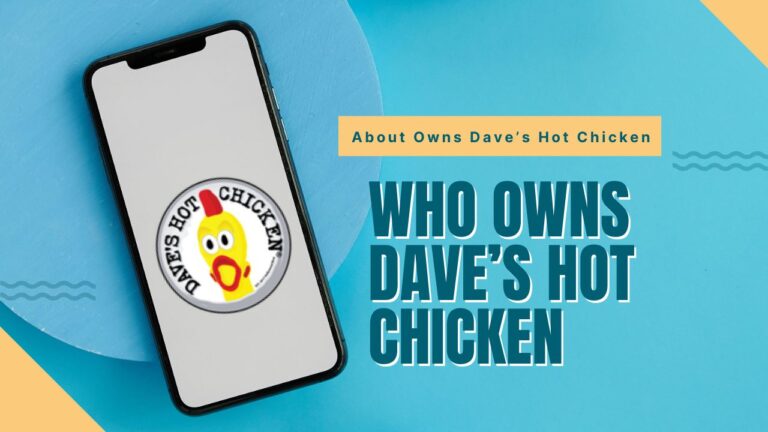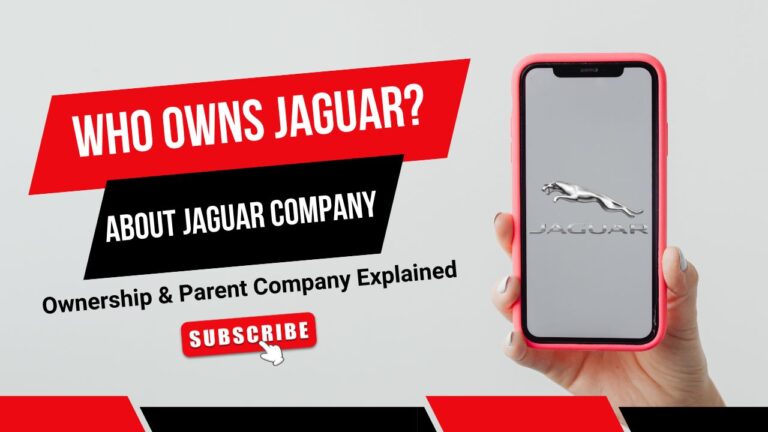Who Owns Rap Snacks? Ownership & Founder Explained
Introduction
Rap Snacks is more than just a snack brand; it’s a cultural movement that fuses hip-hop with the snack food industry.
The brand has gained immense popularity by featuring some of the biggest rap artists on its packaging, offering fans a unique way to connect with their favorite musicians.
While many recognize Rap Snacks for its bold flavors and eye-catching branding, fewer people know about the individuals behind its success.
Understanding who owns and operates the company requires a deep dive into its origins, business strategies, and partnerships that have propelled it to new heights.
Ownership of Rap Snacks is primarily linked to its founder, James Lindsay, a Philadelphia-based entrepreneur with a strong business acumen.
Lindsay launched the brand in the 1990s with a vision to bridge the gap between hip-hop and consumer products.
Over the years, he has worked with various artists and business moguls, including Master P, to expand the brand’s reach.
This article will explore Rap Snacks’ history, key partnerships, logistics ventures, distribution channels, and future prospects to provide a comprehensive understanding of the brand’s ownership and growth.
A Glimpse into the Inspiring History of Rap Snacks
The Birth of Rap Snacks
Rap Snacks was founded in 1994 by James Lindsay, a businessman with a keen eye for marketing and product innovation.
He saw an opportunity in the snack industry to cater specifically to an audience that deeply resonated with hip-hop culture.
Unlike traditional snack brands, which targeted a broad consumer base, Lindsay designed Rap Snacks to appeal directly to rap fans by featuring iconic hip-hop artists on the packaging.
His approach was unique at the time, as it combined entertainment and food, creating a product that stood out in the crowded snack market.
By doing so, he successfully turned Rap Snacks into a brand that celebrated both music and urban culture.
Despite its innovative concept, Rap Snacks faced many hurdles in its early years, including distribution challenges and competition from well-established snack brands.
Lindsay had to work tirelessly to carve out a niche for Rap Snacks, ensuring the product reached convenience stores, gas stations, and supermarkets where his target audience shopped.
Over time, the brand gained traction, largely due to its partnerships with influential rappers who lent their images to the product.
As Rap Snacks became more widely recognized, it secured a loyal customer base, allowing it to expand its product line and strengthen its presence in the snack industry.
The Visionary Behind the Brand: James Lindsay
James Lindsay’s background in marketing and business played a crucial role in the success of Rap Snacks.
Before launching the brand, Lindsay had experience in the food industry, giving him insights into product development, branding, and distribution strategies.
His ability to combine these skills with his passion for hip-hop made Rap Snacks a groundbreaking product in both the music and snack sectors.
His goal was not only to sell chips but also to build a brand that reflected and uplifted hip-hop culture.
By partnering with artists, Lindsay ensured that Rap Snacks remained authentic and culturally relevant, a key factor in its long-term success.
Under Lindsay’s leadership, Rap Snacks evolved beyond just a snack brand and became a cultural symbol.
His marketing strategies have consistently embraced new trends, including digital media and influencer marketing, to keep the brand relevant among younger audiences.
By collaborating with artists like Migos, Cardi B, and Lil Baby, Lindsay has kept Rap Snacks in the public eye while expanding its offerings to include items like ramen noodles and popcorn.
His vision continues to drive the brand forward, proving that innovation and cultural awareness are critical elements of success in the food industry.
Partnering with the World Famous Master P
Master P’s Role in the Brand’s Growth
One of the most significant partnerships in Rap Snacks’ history is its collaboration with hip-hop mogul Master P. As a successful rapper, entrepreneur, and businessman, Master P brought extensive industry knowledge and financial expertise to the brand.
His involvement helped Rap Snacks gain credibility within both the music and business worlds, allowing it to expand its distribution and market presence.
Master P’s ability to leverage his influence and connections provided Rap Snacks with a unique advantage, ensuring it reached a wider audience.
With his guidance, the brand secured retail partnerships and expanded into new markets, reinforcing its status as a dominant player in the snack industry.
Master P’s business acumen extends beyond music, as he has built multiple successful ventures in real estate, film, and consumer goods.
His entrepreneurial mindset aligned well with James Lindsay’s vision for Rap Snacks, making their partnership a strategic move for the brand’s growth.
Together, they worked on marketing campaigns that appealed to hip-hop fans and urban consumers, creating a brand that resonated with a broad demographic.
Master P’s presence in the company also highlighted the importance of Black-owned businesses in mainstream markets, further cementing Rap Snacks’ cultural and economic impact.
Expanding Beyond Snacks: The Hip-Hop Business Influence
Beyond just selling snack products, Master P and James Lindsay have positioned Rap Snacks as a lifestyle brand that embodies the entrepreneurial spirit of hip-hop.
By aligning with artists who have strong personal brands, the company has successfully created limited-edition flavors that generate buzz and drive sales.
This strategy has proven effective, as collaborations with artists like Rick Ross and Boosie Badazz have resulted in high demand for specific products.
The fusion of music and business within Rap Snacks reflects the growing trend of artists becoming entrepreneurs, diversifying their revenue streams beyond traditional music sales.
Additionally, Rap Snacks has embraced digital marketing and social media to engage with its audience, further strengthening its connection to hip-hop culture.
The brand frequently collaborates with influencers, hosts online campaigns, and engages with fans through interactive content.
This approach has helped it remain relevant in an era where consumer engagement is key to brand loyalty.
By leveraging the influence of hip-hop artists, Rap Snacks continues to grow its presence in the competitive snack market while staying true to its cultural roots.
Starting a Trucking and Logistics Business with the Same Name
Rap Snacks Logistics: The Transportation Venture
In addition to its success in the snack industry, Rap Snacks has also ventured into the trucking and logistics business.
This move reflects a strategic expansion aimed at improving the brand’s supply chain and ensuring efficient product distribution.
By investing in logistics, Rap Snacks has greater control over its transportation network, allowing for quicker and more cost-effective delivery of its products.
This decision aligns with the company’s broader business goals, as it reduces reliance on third-party distributors and ensures that products reach retailers and consumers in a timely manner.
The launch of Rap Snacks Logistics also demonstrates the entrepreneurial mindset of James Lindsay and his partners.
Recognizing the importance of supply chain management, they saw an opportunity to streamline operations while also diversifying the brand’s business portfolio.
This expansion highlights the company’s commitment to long-term sustainability and growth, proving that Rap Snacks is more than just a snack brand—it’s a multifaceted enterprise with interests in multiple industries.
How It Ties Back to the Snack Brand
The trucking and logistics business is closely tied to Rap Snacks’ core operations, as it plays a crucial role in ensuring the seamless delivery of products to stores.
By having its own logistics arm, the company can maintain better control over its inventory, reduce transportation costs, and improve overall efficiency.
This strategic move not only benefits Rap Snacks but also opens opportunities for further business ventures, such as providing logistics services to other companies within the food and beverage industry.
Moreover, owning a logistics company strengthens Rap Snacks’ position in the market by creating a vertically integrated business model.
This approach allows the brand to oversee its entire supply chain, from manufacturing to distribution, giving it a competitive advantage.
With this expansion, Rap Snacks continues to solidify its reputation as an innovative and forward-thinking company that is constantly looking for new ways to enhance its business operations.
Peeking into the Distribution Channel Ownerships of the Brand
The Importance of Distribution in Rap Snacks’ Success
Distribution plays a vital role in the success of any consumer goods company, and Rap Snacks is no exception.
As a brand catering to a specific niche within the snack industry, ensuring that its products are widely available has been a key priority for its leadership.
Initially, Rap Snacks faced challenges in getting shelf space in major retail stores due to stiff competition from well-established snack brands.
However, with strategic partnerships and a growing fan base, the company gradually expanded its distribution network to include convenience stores, supermarkets, and online platforms.
By securing deals with large distributors and retailers, Rap Snacks has significantly broadened its market reach.
The brand’s presence in Walmart, Target, and regional grocery chains has allowed it to cater to a larger audience.
Additionally, Rap Snacks has embraced e-commerce by selling its products through its official website and platforms like Amazon, making it accessible to customers nationwide.
This multi-channel distribution strategy has contributed to the brand’s rapid growth, ensuring that fans can easily purchase their favorite flavors regardless of their location.
Ownership and Control Over Distribution
One of the most intriguing aspects of Rap Snacks’ business model is the level of control it has over its distribution channels.
Unlike many snack brands that rely solely on third-party distributors, Rap Snacks has taken a more hands-on approach by developing its logistics and distribution networks.
This decision allows the company to have greater flexibility in managing inventory, responding to market demand, and reducing supply chain disruptions.
By leveraging Rap Snacks Logistics, the brand can oversee the movement of its products from manufacturing facilities to retail stores efficiently.
Additionally, the company has formed direct partnerships with independent distributors who specialize in urban markets.
These distributors help place Rap Snacks in locations where traditional snack brands might not have a strong presence, such as corner stores, gas stations, and small grocery outlets.
This approach has given the brand an edge in reaching hip-hop fans and consumers who may not frequently shop at big-box retailers.
By maintaining control over key distribution channels, Rap Snacks ensures that its products remain available and accessible to its target audience while maximizing profitability.
Future Prospects
Expanding the Brand Beyond Snacks
Rap Snacks has already proven to be a successful and influential brand, but its future potential extends far beyond chips and ramen.
With a strong foundation in the food industry, the company is exploring opportunities to expand into new product categories.
There have been discussions about launching beverages, candy, and even frozen foods that align with the brand’s hip-hop identity.
Additionally, Rap Snacks is looking to deepen its connection with fans by incorporating augmented reality (AR) and interactive experiences into its packaging, allowing consumers to engage with their favorite artists in innovative ways.
Another major opportunity lies in international expansion. While Rap Snacks has primarily focused on the U.S. market, there is growing interest in bringing the brand to other regions where hip-hop culture is thriving, such as Europe, Africa, and Latin America.
By forming partnerships with global distributors, Rap Snacks could tap into new markets and introduce its unique fusion of music and food to audiences worldwide.
This expansion strategy, coupled with digital marketing and social media outreach, could propel Rap Snacks to become a globally recognized brand in the coming years.
Sustaining Growth Through Innovation and Partnerships
As the company looks ahead, continuous innovation and strategic partnerships will be key to sustaining its growth.
Rap Snacks has already demonstrated its ability to evolve by collaborating with new artists and incorporating trendy flavors that appeal to younger consumers.
Moving forward, the brand is likely to explore even more collaborations with hip-hop icons, social media influencers, and entertainment platforms to keep its marketing fresh and engaging.
Furthermore, the company’s expansion into logistics and distribution suggests that it may explore additional business ventures in the future.
By maintaining a strong focus on supply chain efficiency, Rap Snacks can improve its profitability while also offering logistics solutions to other small brands looking to scale.
Ultimately, the future of Rap Snacks looks promising, with endless possibilities for innovation, growth, and continued cultural influence.
As long as the brand stays true to its hip-hop roots and maintains a strong business strategy, it will remain a dominant player in the snack industry for years to come.
Conclusion
Rap Snacks has grown from a small entrepreneurial venture into a powerhouse brand that blends hip-hop culture with the snack industry.
Under the leadership of James Lindsay, the company has successfully carved out a unique niche, making its mark with bold flavors, artist collaborations, and an innovative business approach.
With strategic partnerships, including its collaboration with Master P, Rap Snacks has gained significant traction, expanding its distribution and influence beyond traditional snack brands.
The brand’s ability to integrate music, culture, and food has made it a favorite among hip-hop fans and snack lovers alike.
Looking ahead, Rap Snacks’ future appears bright, with expansion into new product categories, international markets, and deeper engagement with consumers through technology and branding.
By continuing to innovate and leveraging its own distribution networks, the company is well-positioned for long-term success.
As it grows, Rap Snacks remains a testament to the power of merging culture with business, proving that a strong vision, strategic partnerships, and a commitment to authenticity can turn a simple idea into a thriving brand.



